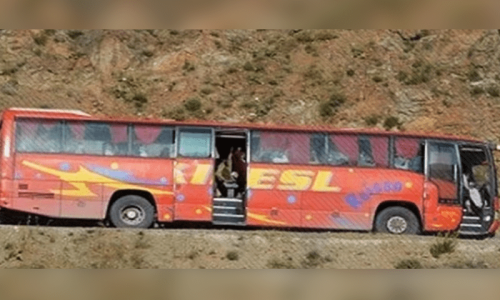Being a student of archaeology I am in the habit of comparing the past with the present and somehow end up thinking that the ancient people were more advanced, sophisticated, civilised and intellectually sound.
The region of Khyber Pakhtunkhwa (KP) has gone through many difficult stages of history. Alexander ravaged it coming all the way from Macedonia; the Scythians and the Kushans from Central Asia too wreaked havoc on the entire region. But then there were some amazing times too when KP was the centre of propagation for peace through Buddhism. One of the first universities of the world was constructed here (Takht-i-Bahi and Taxila) and eventually this place became the seat of learning. Students from all over the Buddhist world came to learn sutras, religion, languages and other sciences (the phenomenon which modern day educationists call internationalisation).
The origin of the Indus Valley civilisation can be traced back to ancient KP that later on gifted the world the science of civil engineering and town planning. The emergence of Hinduism can easily be traced from this very region. Until recent times, this province was the centre of multicultural activities (internationalisation), and I am sure that all this happened because of good governance, administration and through sincere commitment practiced by the ancient people.
Pakistan is blessed with various natural and cultural resources which include a rich history too. There are approximately 5,000 archaeological sites only in KP (many others have not been explored yet in other provinces). Despite extraordinary wonders, which perhaps we do not deserve because we have not learnt from our glorious past nor do we feel proud of our cultural heritage, the country has never capitalised on its glorious assets and as a result is facing many problems and turmoil. Another factor is bad governance.
As a student of archaeology, I haven’t come across any civilisation or nation, which would wilfully destroy its rich cultural heritage.
According to a survey conducted by Hazara University in collaboration with the University of Leicester, UK, through British Council Pakistan, 98 per cent people in KP have no idea what is archaeology, heritage and culture, and most of them have never been to a museum in their whole life. The results of this survey are shocking because the research sample included bureaucrats, administrators and custodians of archaeological heritage.
Many examples can be quoted from Pakistan, particularly from the KP where, due to poor governance/lack of awareness, many archaeological sites are perishing at an alarming rate. Whenever asked why the cultural heritage is decaying, the government officials unanimously reply: “We are in a state of war and we have other priorities than culture and archaeology!” It explains all: how beautifully they mask their incapability and lack of management/governance skills by using external factors and denying official responsibility.
There is no doubt that we are in a state of war, but what about the decaying cultural heritage? I believe, the major issue the country faces is its confusion regarding cultural identity, or the lack of pride in the glorious past, that we have lost somewhere! Developing pride and the sense of ownership of our rich past, can serve as an effective tool to bring the country out of the present chaos, uncertainty and confusion.
All this can be done through spreading public awareness about cultural heritage and by educating the officials, the so-called custodians of our cultural heritage. It is a pity that they consider it the least important or priority issue to be dealt with seriously.
The smuggling of antiquities and illegal digging of archaeological treasures is going on at a very alarming pace in the province, despite the only existing antiquity act of the country (NWFP 1997 Antiquity Act) as its implementation is almost zero. Despite boasting more than 5,000 archaeological sites in KP, only around 90 sites are protected under the act. In spite of the rich cultural profile only one archaeological site has been included as yet in the Unesco world heritage list (Takht-i-Bahi in 1982).
I am not citing individuals, but I am mourning the fact that uninformed officials are often posted at important posts in the country and because of their lack of vision and decision making KP’s heritage is being deliberately prevented from becoming an effective front line against ignorance, bigotry and anarchy of present times. Gandhara civilisation taught tolerance and co-existence to the outside world two millennia ago, and it needs to once again define Pakistan’s heritage and cultural policy.














































Dear visitor, the comments section is undergoing an overhaul and will return soon.